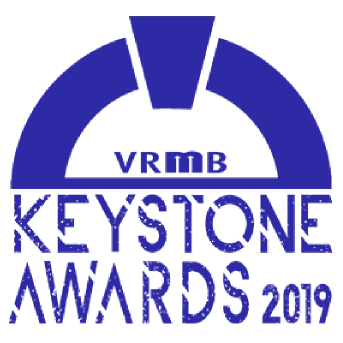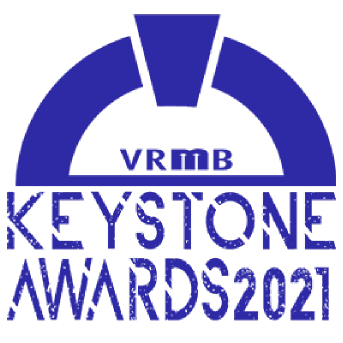Hosts all over the world are capitalizing on the staggering growth shown in the vacation rental industry. They’re expanding the number of properties they run and as a result, the revenue they generate. And why not? The vacation rental industry continues its dizzying expansion, showing growth of at least 20% for five consecutive years.
If you’re new to the vacation industry, you might feel like you have your hands full with one or two properties. On top of the time needed to manage, clean, and maintain these properties, you’re probably wondering how financing new vacation rentals is even possible. We can help! Let’s explore the primary ways you can finance the growth of your short-term rental portfolio.
Pandemic changes: now is the perfect time to invest in growth
The pandemic has changed our world in so many ways, especially when it comes to travel. During our earlier COVID days, people practiced social distancing and isolation: they mainly stayed at home, away from others. Then, as restrictions began to loosen for the first time, people became stir-crazy and started traveling. However, they wanted to do it as safely as possible and stay away from other travelers. So they began looking for rentals that were away from urban centers rather than in condos and high rises. And those Airbnb vacation rentals that had a country home not far from excitement cashed in big.
But that’s not the only reason now is the best time to invest in a vacation rental. Your pocketbook will thank you because 30-year home mortgage rates have fallen below 3% for the first time. Between the massive shift in traveler preference and the prices of homes, savvy investors should take a serious look at that vacation rental investment.
Start by increasing the profitability of your current operation
Small investments, such as changing up old decor, a fresh coat of paint, adding interesting tech options for guests, or paying a professional photographer for your listing photos is an excellent short-term investment. Provided your property is already attracting travelers, you’ll be able to charge more per night right away, increasing your vacation rental income.
Guests love amenities so adding some extra bits of incentive will also help increase profitability. For example, you could offer a welcome basket, a Netflix subscription, Spotify playlists and, and utilize smart home features like smart lights and thermostats. To make your listing even more appealing, a digital guidebook with all information in one web-based URL does the trick.
If you haven’t tried dynamic pricing tools to optimize your pricing per night, now is the time to do so. These tools access big data to find out what is the best price for your listing and adjust automatically, saving you plenty of time and also making you profit.
To help keep things flowing smoothly on your end, consider a Property Management Platform (PMP) such as Hostfully’s. With a PMP, all your operational, management and marketing tasks will be automated meaning you will have plenty of time to focus on other aspects of your business.
Are there ways to cut your current costs?
Now for the uncomfortable part. Ask a friend (or that grumpy uncle who claims to know everything about business) to review your vacation rental operation for unnecessary expenses. Maybe that printed guidebook is not a good idea because of the costs of maintaining and constantly updating it (go digital!). Or do you really need to provide 3 kinds of laundry detergent? What about the cleaning fee you’re not charging guests? Maybe you could consolidate your various management tools into one powerful management platform. Moving to a PMS can simultaneously cut your costs and increase your monthly income.
If you can successfully trim the fat off your expenses, it’ll do two things:
- Shorten the time it takes to save up for that next property. At the very least, the extra cash flow will help pay for decorating, marketing, and upgrading your next vacation rental.
- Make it a no-brainer for a lender to finance a future vacation rental property. You want to show that you’re running a lean and profitable operation, not just a business you fell into haphazardly.
 Then ask yourself, can you finance the expansion on your own?
Then ask yourself, can you finance the expansion on your own?
If you have cash lying around in your checking account to help fund your next vacation rental, that’s always your best option! After all, why pay a lender interest? But before you draw from your savings, make sure you’re not losing out on other opportunity costs.
To make sure you have all of your ducks in a row, meet with a mortgage expert, financial planner, certified public accountant, and/or a real estate expert who is also familiar with the location of your rental. This can help you gain insight into your finances and options. From there, you can understand the best route for financing your vacation rental.
As with any business, you need a financial buffer in case of emergencies. There’s a rule of thumb for vacation rentals. Generally speaking, you want to keep six months of operating expenses in cash. If anything happens (to the property or even yourself), you aren’t forced to make poor financial decisions under pressure. It’ll also reduce the stress of making the next vacation rental profitable right from the start. Don’t forget that new vacation rentals take time to attract guests consistently – the property doesn’t yet have high star ratings or positive reviews.
Family support
If you cannot finance your property on your own, you could consider a loan from your spouse, a family member, or a friend. This type of assistance is called “patient capital” by investors and bankers since the money is repaid as your business profits grow. However, when asking for assistance from friends and family, be sure that you do not compromise relationships for profit. Quite simply: it’s not worth it.
Whatever you do, avoid personal credit cards
If you have credit cards with high credit limits handy, financing your growth with your credit card might be a viable option if you can pay it down quickly. Otherwise, you will be charged monthly, with compounding interest that will build up quickly.
But here’s the problem. The only time it would be worth incurring 20% interest for an investment would be in an ultra-hot vacation rental market where properties are cheap, and income potential is high. Sounds too good to be true, doesn’t it? That’s because it is. On $300,000 of principal, we’re talking $60,000 of annual interest. So unless your vacation home is earning $60,000 plus operating expenses (cleaning, management fees, repairs) and then some to pay off principal, you’re unlikely to be successful financing your vacation rental with credit cards. Not to mention that in some areas, you can’t use personal credit like that.
Consider lines of credit if you have cash on hand
This option may vary depending on your bank and your lending capacity. But if you already have cash available from savings, you could avoid approaching financing companies altogether. Just run the numbers and make sure your market research is bulletproof: you’re assuming all the risk with this option.
Seek external financing: should you go with general lenders or vacation rental specialists?
If you have a strong business case that a new vacation rental will generate tons of revenue, but you can’t self-finance, it’s time to look at financing.
As with any loan, you can approach traditional lenders like banks, credit unions, and mortgage companies. However, you might face the challenge that running a vacation rental as a business is relatively new in the eyes of the finance world. You’re not asking to borrow to open a bakery or a comic book store. You want a loan to buy a house (is it a residential mortgage?) to run it as a hospitality venue (or is it a commercial loan?)
Be honest with the lenders
When asking traditional lenders for financing, be clear that it’ll be a vacation rental home. Sure you’ll get a better rate from a conventional mortgage, but it’s your second home and not your primary residence. Lenders will consider the property an investment. Being upfront might limit your interest rate options. However, if you present a strong business case, you’re likely to get a fantastic rate anyways.
Consider non-traditional lenders
All this talk of traditional lenders is exhausting. After all, isn’t the point of running a vacation rental business to get away from the clasp of the corporate world? That’s why we’ve seen the growth in alternative financing and fintech startups that aim to help home-sharers with their small businesses. Companies like Clearco and HostFinancial have helped thousands of entrepreneurs grow their vacation rental businesses with financing capital and business intelligence services. They’re non-traditional lenders that are nimble and see the value of short-term vacation rentals as a lucrative venture as much as you do.
Look into specialized investments
Services like Clearco’s Vacation Rental program invests up to $100,000, specifically in owners or property managers who are looking to acquire new properties and complete renovations. Based on your future reservations, companies like Clearco can help you bring new listings online and expand your business and property portfolio.
The main advantage here is that this method allows you to keep your business and personal life separate. You’re not personally liable, and none of your assets are tied up as collateral.
The takeaway
The ideal financing option depends on your business. Some factors to keep in mind: how much more revenue will I be able to generate with this investment? How fast can I pay off this debt?
With all your options, you should think through what makes the most sense for your business. As each home and location is different, the best option for you may vary depending on your circumstances.








